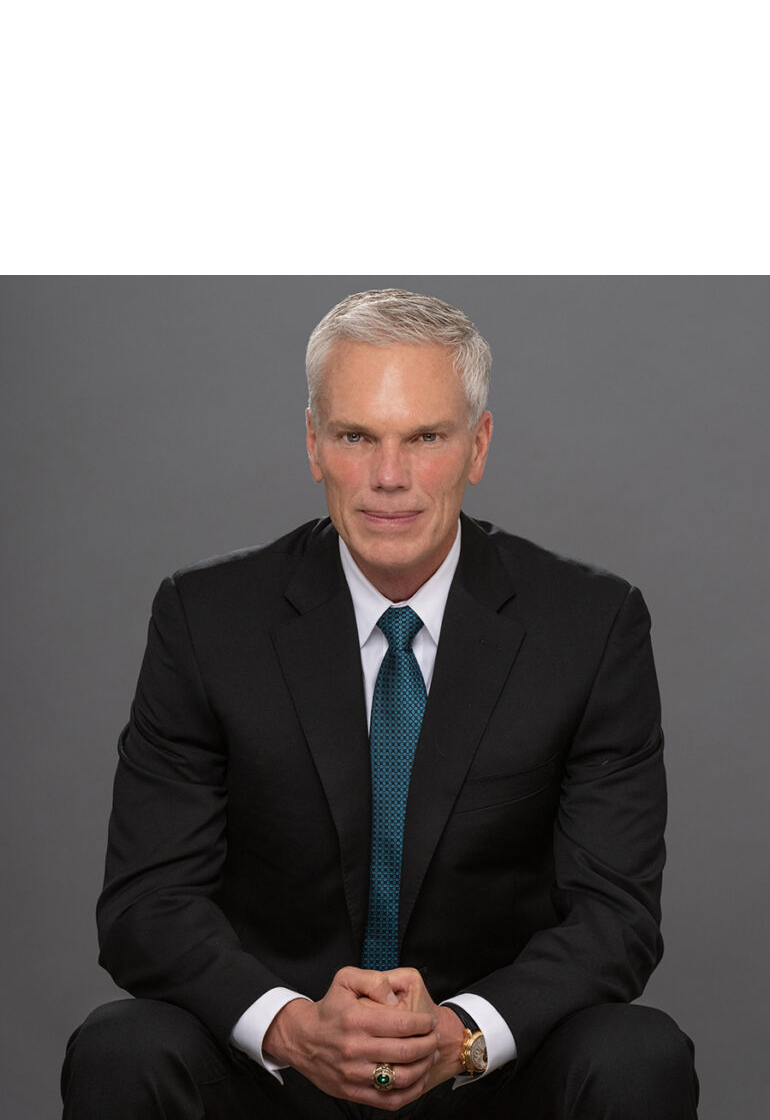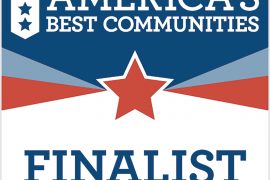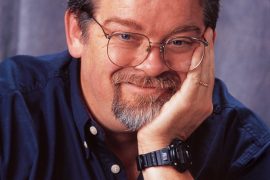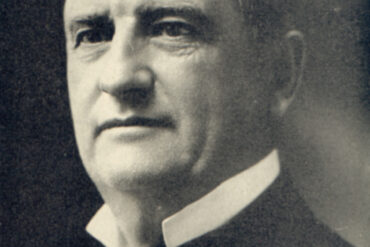Marshall makes a bold move by bringing former Fortune 500 CEO Brad Smith back home to lead the university into a new era
By Jack Houvouras
HQ 115 | AUTUMN 2021
When Brad Smith was the CEO of Intuit in Mountain View, California, he had a small, rustic wooden sign in his office that read, “Country Roads Take Me Home.” Today, on his Facebook page under the “About Brad” tab are the words: “Just a boy from a small town who spent 22 years trying to get out … and the rest of my life trying to find a way to get back!” While most people probably viewed such sentiment as hyperbole, they would be mistaken. The former Fortune 500 CEO was quite sincere.
On Oct. 28, 2021, Smith finally found his way home when the Marshall University Board of Governors voted unanimously to name him the school’s 38th president. In doing so, the Board made a number of historic “firsts” in its selection — the first ever Marshall alumnus to lead the university on a full-time basis, the first ever Huntington-area native and the first Fortune 500 CEO to lead an American university. To some, the choice was unconventional because Smith doesn’t hail from academia. To others, it was the smartest move the school has ever made.
“Brad Smith is undoubtedly the right person, at the right place and at the right time to lead Marshall University as our next president,” said Patrick Farrell, chairman of the Board of Governors. “As the search concluded, we discovered there is only one Brad Smith, only one Son of Marshall and only one candidate who has been preparing his whole life for this opportunity.”
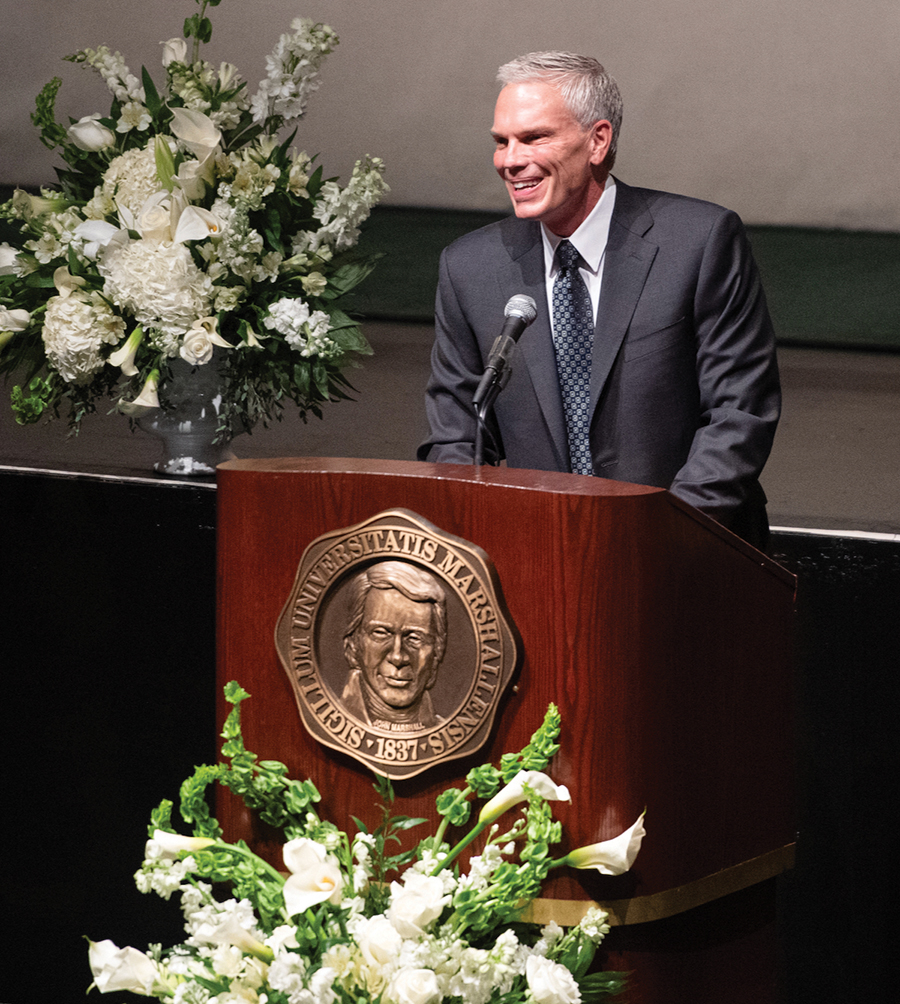
Board member Kathy D’Antoni echoed those sentiments.
“This is a historic time in Marshall’s history,” said D’Antoni. “We have a nationally acclaimed business leader, a Marshall alumnus and a West Virginia native returning home to give back to the community where he was raised. Brad Smith is humble and gracious and embodies the spirit of paying it forward.”
Because of the many changes ushered in at the start of the 21st century, the role of a college president is evolving. An article in the Spring 2018 edition of Linfield Magazine addressed the issue: “A well-spoken intellectual is no longer enough. Leaders are needed who have worldly and practical skills, who can read a financial statement, seek out financial support and navigate a kind of education that will meet the practical skills in high demand.”
In fact, today 22% of the college presidents in the U.S. come from outside academia. As such, the Board’s decision to choose a former Fortune 500 CEO to lead Marshall University could be seen as both timely and forward-thinking.
It would be hard to argue the skill set that Smith brings to the job. He is a proven leader, having run a $6 billion company with 11,000 employees. Under his 11-year tenure, Intuit’s stock value increased by 626%. Smith has powerful contacts around the world and has rubbed elbows with the CEOs at Apple, Google, eBay, Hewlett-Packard and Proctor & Gamble, just to name a few. He understands the importance of marketing and has worked with some of the most well-respected ad agencies in the U.S. He sits on the board of directors at Nordstrom and Momentive (formerly SurveyMonkey) and previously served on the board at Yahoo. And if the faculty and staff at Marshall are concerned about what kind of boss he will be, they will be relieved to learn that Fortune consistently listed Intuit as one of the “Best Companies to Work For” in the United States. In 2018 it was ranked No. 13 on the list.
It’s not hard to see how a resume like that will impact fundraising at the university. What’s more, the number of doors Smith can open for student internships at major corporations is staggering.
“Of the five finalists we interviewed, Brad Smith stood head and shoulders above the rest,” said Bill Noe, a member of the Board of Governors. “It’s a once-in-a-lifetime opportunity to have not only a very qualified candidate, but a Fortune 500 CEO. His insights, strategic vision and business acumen were unmatched. Brad is a proven leader who is used to dreaming big. I think he will reshape the way we do business and take Marshall to levels never imagined.”
Another important ability needed by today’s college presidents is endurance. The demands of time and energy placed on these leaders have grown exponentially in recent years.
“These are arduous jobs,” said Stanley Katz, professor of public and international affairs at Princeton University. “Presidents spend a significant amount of time raising money and raising enrollments to provide the wherewithal for high-level education. They tend to be very tired, working long hours and under pressure.”
That shouldn’t be a problem for Smith. The 57-year-old works out every morning doing P90X and recently changed his diet to be entirely plant-based. In short, he is incredibly fit and well prepared for the challenges of the job.

Brad Smith was born in Huntington and grew up in nearby Kenova. His father worked for Nestlé for 26 years, while his mother stayed at home to raise Brad and his two brothers.
“I couldn’t have wished for better parents,” Smith said. “There was no question that we were loved.”
He was just 6 years old when the Marshall plane crash occurred a short distance from his family’s house.
“I still remember looking out the window of our home and seeing the mountain glowing red,” he said. “My cousins were volunteer firemen for the Kenova Fire Department, so we had a police scanner. We could hear everything going on.”
After graduating from Ceredo-Kenova High School, Smith was accepted to the U.S. Military Academy at West Point, but after one semester decided to return to Huntington and enroll at Marshall.
“Marshall was pulling me back home. In the end, Marshall gave me everything I was looking for in an education,” Smith said.
Eventually all three Smith brothers earned their degrees from Marshall. It was a dream of their parents that all three of their sons would go to college.
“I remember one Christmas morning my dad announced that he had a surprise, then gave each of us a class ring from Marshall that he had picked out himself,” Smith recalled. “A few days later he passed away of a heart attack at the age of 58. My brothers and I wear the rings every single day, not only for Marshall, but for our parents and the sacrifices they made on our behalf.”
Smith earned a Bachelor of Business Administration with an emphasis in marketing from Marshall in 1986. He then went to work at a number of large corporations across the country, including Pepsi, ADVO and ADP. While working in Grand Rapids, Michigan, he attended night school and earned his master’s degree in management and leadership development from Aquinas College.
During Smith’s climb up the corporate ladder, one of his bosses expressed concern about his West Virginia accent. Convinced that it might hinder his career, he advised Smith to enroll in speech classes that would defuse his dialect.
“It didn’t work,” Smith laughed. “You know, it’s funny, I think that experience actually helped me learn an invaluable lesson in life — to be authentic to who you are. Today, when I’m asked to give a speech, I start off by saying that I grew up in a small town in West Virginia and went to Marshall University.”
It was while he was working in northern Ohio that he met his wife Alys, an attorney from Akron. It was a blind date of sorts, arranged by a coworker.
“I went to her house to pick her up, and when she opened the door it was love at first sight for me,” Brad confessed. “Her eyes were amazing, and she looked like a movie star.”
They were married 18 months later and would go on to have two daughters, Payton and Devon.
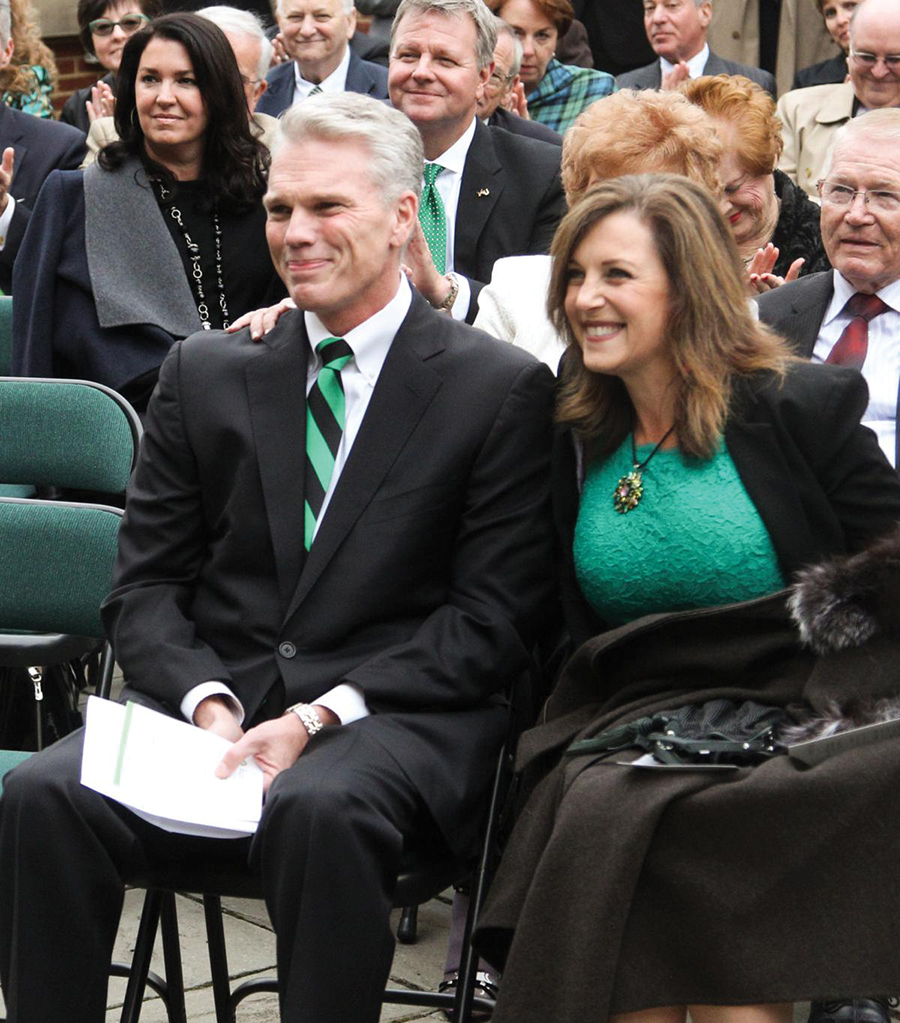
In 2003, Smith accepted an offer to join Intuit, the Silicon Valley-based software giant and maker of QuickBooks, Turbo Tax and Mint. He then began a five-year rise within the company that was unprecedented. In 2008, he was named CEO.
Smith was just 43 years old when he was asked to take charge of a global entity with 8,000 employees and annual revenues of $2.6 billion. Smith’s 11-year tenure at the helm saw impressive growth at the company. The revenue doubled, the workforce grew with the addition of 3,000 employees and the stock price climbed from $30 a share to $215 a share — an increase of 626%.
Smith’s performance at Intuit received praise, and it wasn’t based solely on the profits he was posting for shareholders. He was a bit of a rock star with the employees, and his leadership style earned him numerous accolades. Fortune ranked him No. 6 on its list of Top CEOs in the United States, and Forbes ranked him No. 15 on its list of “America’s Most Innovative Leaders.”
At the end of 2018, Smith announced that he was stepping down as CEO of Intuit. However, he agreed to stay on as chairman of the Board of Directors. The company expressed its gratitude by naming the flagship building on the Intuit campus in Smith’s honor. Smith said the decision to scale back was based on his desire to spend more time with Alys and their two daughters. Another motivating factor was born out of a desire to pay it forward. In partnership with Alys, Smith founded The Wing 2 Wing Foundation, which focuses on advancing education, entrepreneurship and the environment in Appalachia.
In the last six years, the Smiths have gifted Marshall a total of $35 million. The first gift of $10 million is being used to fund scholarships for students from West Virginia and Ohio. The second gift of $25 million — one of the largest in the university’s history — is being used to help “reimagine” the university’s business school, operate a business incubator for aspiring entrepreneurs and fund the construction of a new College of Business building in downtown Huntington.
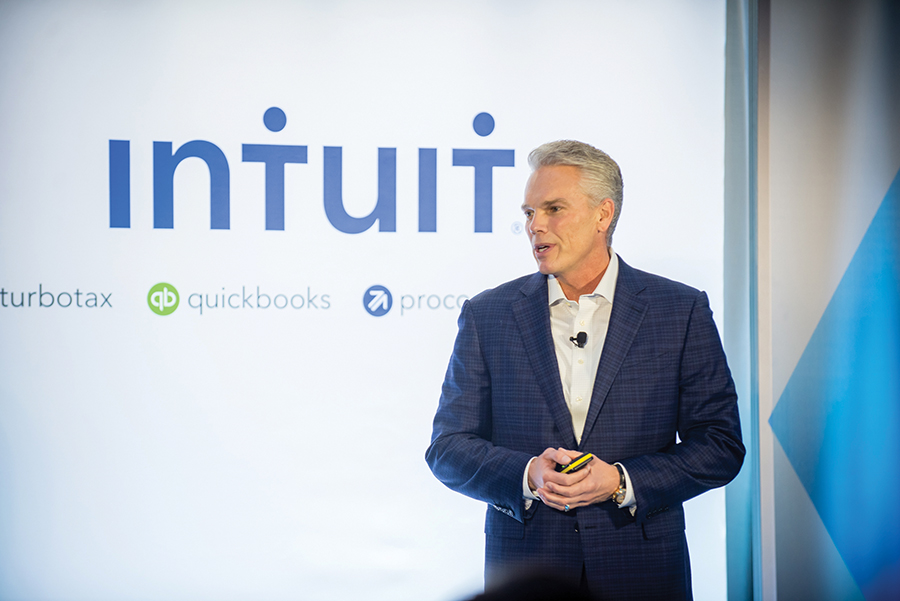
A staunch advocate for his home state of West Virginia, Smith through his foundation donated $25 million to WVU in 2020 to fund the Brad and Alys Smith Outdoor Economic Development Collaborative as well as a remote worker program. Named Ascend West Virginia, it is designed to recruit individuals and families to live, work and play in West Virginia. The concept is similar to a program started in 2018 called Tulsa Remote, which offered to pay remote workers $10,000 to move to Tulsa for one year. After the year had ended, most of the workers opted to stay. The average salary of the Tulsa Remote jobs was $105,000.
“Recent studies show that workers in New York, Boston and San Francisco want to live in smaller communities with less commute time and a lower cost of living,” Smith said. “By moving to West Virginia, they will be bringing their job, their talent, their family and their purchasing income; this will greatly strengthen our economy.”
Having overseen a predominantly young workforce during his years in Silicon Valley, Smith seems to have his finger on the pulse of the next generation.
“When you talk to young people today you learn that what’s important to them are life experiences,” Smith explained. “They also have a deep love of the outdoors, including hiking, mountain biking, whitewater rafting, rock climbing and skiing. Research shows that West Virginia has more of those activities than any other state in America. Our job now is to sell them on why they should move here.”
Several leaders in Huntington see Smith’s relationship with WVU and President Gordon Gee as a major shift in the right direction. They are hoping that the two schools can collaborate on more initiatives going forward. One recent example is a program designed to help make West Virginia known nationally as the “Startup State.”
“Today, 75% of all new jobs are created in start-ups,” Smith explained. “Both WVU and Marshall are working hard to reimagine their curriculums and help students thrive in the new digital economy. We need to encourage and support entrepreneurs in every corner of the state. Education and entrepreneurism are the great equalizers in a society where opportunities are not always equitably distributed.
“It used to be that eight out of every 10 college graduates wanted to work for a large corporation,” Smith continued. “Today, eight out of every 10 college graduates want to work for themselves. This is the millennial mindset. I think if we could breed entrepreneurism, that could be our single biggest opportunity in West Virginia. We want every student in this state to have a sense of pride about where they are from and to realize they no longer have to leave West Virginia to pursue their dreams.”
Marshall’s 38th president will report to work on Jan. 1, 2022. While he already has a number of ideas for how to move the university forward, he said his first order of business will be to take the pulse of the campus and the community.
“The first thing I would like to do as president is go on a listening tour. I want to hear from the faculty, staff and students, as well as members of community,” Smith said. “Next, I plan to roll up my sleeves and get to work. We are in the 21st century where higher learning is being changed and disrupted, and I want to help lead Marshall through this transformation. It is my aspiration that Marshall will rank among the elite universities in the nation in preparing young minds to compete in this new future.”

He also asserted that diversity, inclusion and belonging must be present on campus, just as they were at Intuit when he was the CEO.
Smith should feel right at home in Huntington; in many ways, he never really left. During his career he returned numerous times to see his mother and two brothers, with whom he is very close.
“I love the Huntington area,” he said. “There is this pride in Huntington, Kenova and Marshall that is different from many of the places I’ve been. Marshall has a sense of purpose. Look at what it has accomplished since the plane crash. Champions aren’t defined by whether they hit the canvas, but by how quickly they get back up. This university has been hit with tragedy and fought its way through, and it just keeps coming back. And I think that is the secret to life.”
While Smith has accomplished much in his 38-year career and garnered a bevy of honors and awards, he said being selected as president of his alma mater might be the most humbling experience of his life.
“When I stepped down as CEO of Intuit three years ago, it became clear what my purpose was — to return to West Virginia and make a difference. Anything I have ever accomplished in life is because someone at Marshall University invested in me. I would consider it the ultimate privilege to be able to pay that privilege forward to the next generation.”

